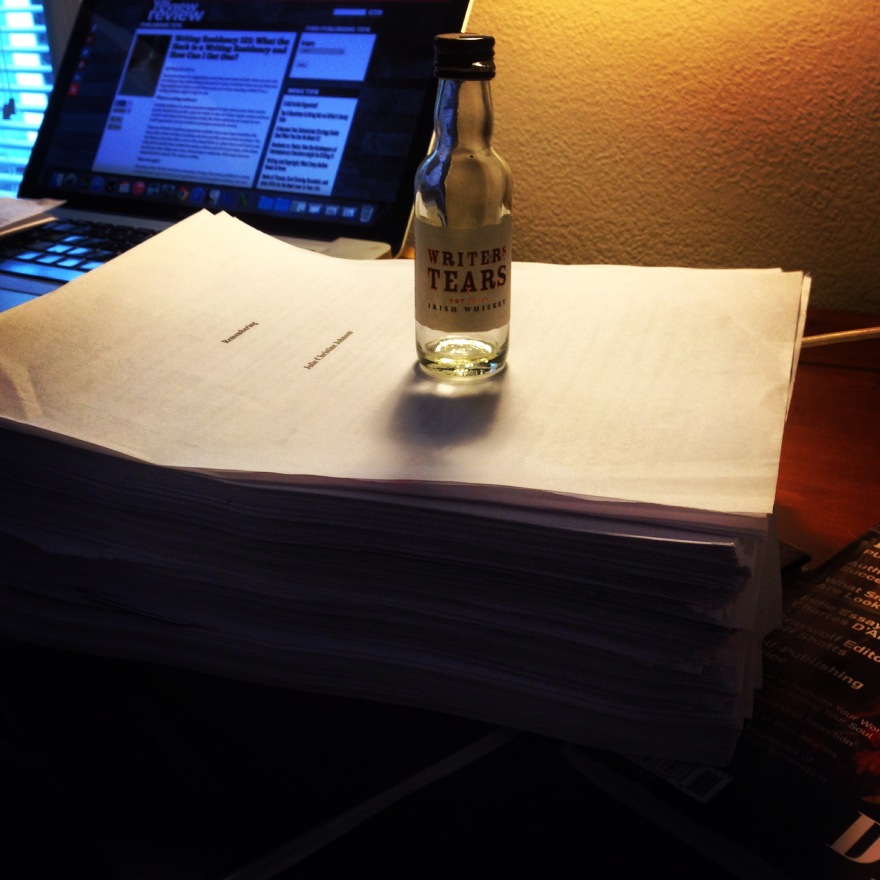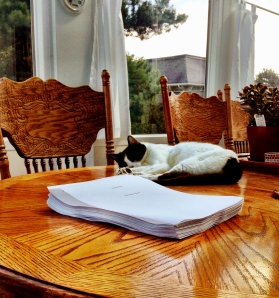Those cooking magazines stacked on a shelf. I hold on to so little from my past that is tangible, but these long, glossy journals contain dreams and memories about which I cannot speak. I never look through them, and yet I take comfort in the pretty swirl of logo on their spines. They tell of a land where I once made Spicy Pumpkin, Peanut and Spring Onion Fritters, Harissa Lamb Mince, Black Cherry Cake with Ricotta Cream, savored wines from Gimblett Gravels and Central Otago, and pressed flat the corners of color-drenched articles about Waiheke Island, Hawke's Bay, Akaroa, planning future explorations of our new home: New Zealand.
~
A photograph of three men on a bridge in southwest Ireland. Their waterproof jackets in primary red, blue, and green are playful beacons in a drizzle that softens the air so the photograph looks brushed with mist, like the picture of a dream. One of those men is gone, now.
~
A disaster I watched unfold from thousands of miles away. A city crumbling, streets liquefying, familiar buildings collapsing on themselves, as if dealt a sucker punch to their architectural sternum. The café where I had served slow-braised lamb shanks and poured glasses of pinot noir now in ruins, streets I had walked and biked to yoga, the library, the tea shop, the bookstore turned into canyons filled with rubble. But I no longer belonged to that place. There was nothing I could do but mourn.
~
"We write to exert power over something we can never control," says Nellie Hermann, creative director of the narrative medicine program at Columbia University. "The past."
~
The stories that live inside me are threads of evidence. Evidence of my past, real and imagined, remembered and wished for. Many of those threads dangle, barely visible unless the light shifts or the breeze picks them up. But sometimes a thread catches on a thought, and then another, until they weave themselves into a pattern, and that pattern becomes a narrative of character and place, of movement and change.
~
A stack of cooking magazines that hold regrets and broken dreams. A photograph of a moment that holds memories of a man who walked by my side on a green peninsula, where together we built a bistro in the misty air. An earthquake that shattered a place I'd called home. These threads found each other last summer, twirling into a rope I held as I wrote.
~
It is an honor when someone selects your story to share with the world. It is a thrill to press a beautiful volume of prose and poetry and art against your heart and know your words beat within its pages.
~
Mud Season Review, the literary journal of the Burlington Writers Workshop, selected my short story Prix Fixe for its first annual print issue. I am so pleased.




















